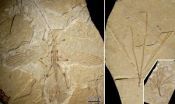(Press-News.org) A pilot scheme allowing patients to visit GPs outside the area they live in was most popular among younger commuters and people who had moved house but did not want to change their GP, according to a new report by the London School of Hygiene & Tropical Medicine.
The Department of Health's Choice of GP pilot scheme found that while demand overall was modest, participants were generally positive about the scheme and there was little sign of major increased cost to primary care trusts (PCTs) for providing the service. Patients will be able to register with volunteer practices outside the area where they live throughout England from October 2014.
The pilot began in April 2012 for 12 months in four PCT areas of the country with volunteer practices (Westminster, Salford, Manchester and Nottingham City), and allowed patients to register with a pilot practice as an 'out of area' patient. Patients in the pilot could also be seen as a 'day patients' while remaining registered with their original practice, however, this option will not be included when the scheme is rolled out.
A total of 43 practices participated in the pilot, with approximately half of the practices in Westminster. However, 11 of the 43 pilot practices recruited no patients during the 12 months of the pilot. The authors suggest this could be because the scheme was not widely advertised in the pilot areas.
A total of 1,108 patients registered with pilot practices as 'out of area', with the scheme being most popular in Westminster, which accounted for 71% of all 'out of area' patients. Overall, patients were much younger, more likely to have better self-reported health, more likely to be in work, and twice as likely to have more than a 30-minute commute than other patients in the pilot areas.
There were four types of 'out of area' registered patients; patients who had chosen their new practice for convenience, for example, because it was close to their work (32.6%), patients who had moved house but did not want to change their practice (26.2%), patients who were new to the area and had registered with a pilot practice but lived outside the practice's catchment area (23.6%) and patients who were dissatisfied with their previous practice or chose their new practice for specific services or to see a particular GP (13.9%).
Lead author Professor Nicholas Mays from the Policy Innovation Research Unit at the London School of Hygiene & Tropical Medicine, said: "While demand for the pilot was modest, our evaluation found that patients had positive views of the scheme because, for example, they didn't need to take time off work to visit a GP or they were able to continue care with a doctor they had a longstanding relationship with after they moved house. Our findings suggest that the extension of the scheme across England later this year will appeal to a minority of the population who have these needs and in particular parts of the country."
"However, we need to bear in mind that the pilot was only for 12 months and only in four areas of the country, so it is difficult to know precisely how the scheme will work on a larger scale and over the long term."
Health Minister Lord Howe said: "Our recent changes to the GP contract will help patients choose a GP practice to suit them. This will support hardworking people who commute to work and cannot access their local surgery during opening times, and enable people who move house to stay with their GP if they want to."
While patients and the majority of pilot practices were very positive about extending the scheme, health system managers were more cautious. The authors also note that patients were not in the pilot long enough for many potential drawbacks to become apparent, including issues related to receiving out of hours care while registered at a practice far from their home.
Although there were a number of practical problems to be resolved in implementing the pilot, none were seen as insurmountable if the scheme were rolled out. Managers had some concerns related to the risk that 'out of area' registration could lead to practice lists becoming more socio-economically segregated. Another concern was related to managing referrals and their costs if more patients found themselves living outside the area where their general practice was located.
Older patients, or patients who were satisfied with their local services, were far less interested in registering at a practice outside their neighbourhood. In choosing a practice, the report found that people felt most strongly about getting an appointment with a GP as quickly as possible and most people did not regard weekend opening as important in determining their choice of practice.
The independent evaluation was commissioned by the Department of Health on behalf of NHS England through its Policy Research Programme, as part of the core research programme of the Policy Innovation Research Unit at the London School of Hygiene and Tropical Medicine.
INFORMATION:
For more information or to request interviews or a copy of the report, please contact the London School of Hygiene & Tropical Medicine press office on +44(0)2079272802 or press@lshtm.ac.uk.
If you wish to provide a link to the report for your readers, please use the following, which will include the report at the time the embargo lifts: http://www.piru.ac.uk/publications/piru-publications.html
Notes to Editors
About the London School of Hygiene & Tropical Medicine
The London School of Hygiene & Tropical Medicine is a world-leading centre for research and postgraduate education in public and global health, with 3,900 students and more than 1,000 staff working in over 100 countries. The School is one of the highest-rated research institutions in the UK, and was recently cited as the world's leading research-focused graduate school. Our mission is to improve health and health equity in the UK and worldwide; working in partnership to achieve excellence in public and global health research, education and translation of knowledge into policy and practice. http://www.lshtm.ac.uk
About the Policy Innovation Research Unit (PIRU)
The Policy Innovation Research Unit (PIRU), based at the London School of Hygiene & Tropical Medicine, brings together leading health and social care expertise to improve evidence-based policy-making and its implementation across the National Health Service, social care and public health. The Unit is funded by the Policy Research Programme of the Department of Health. http://www.piru.ac.uk
Choice of GP practice pilot most popular with young commuters and patients moving home
2014-03-20
ELSE PRESS RELEASES FROM THIS DATE:
Future heat waves pose threat to global food supply
2014-03-20
Heat waves could significantly reduce crop yields and threaten global food supply if climate change is not tackled and reversed.
This is according to a new study led by researchers at the University of East Anglia and published today, 20 March, in IOP Publishing's journal Environmental Research Letters, which has, for the first time, estimated the global effects of extreme temperatures and elevated levels of carbon dioxide (CO2) on the production of maize, wheat and soybean.
Earlier studies have found that climate change is projected to reduce maize yields globally ...
Data on antibiotic use in non-EU countries should stimulate development of action plans
2014-03-20
A new study, published in The Lancet Infectious Diseases journal, provides the first ever reliable data on antibiotic use in non-European Union (EU) southern and eastern European countries and newly independent states.
The research, which was led by Dr Herman Goossens, of the Vaccine and Infectious Disease Institute (VAXINFECTIO) at the University of Antwerp, Belgium, is a critical first step in identifying targets for improvements in the way antibiotics are used in these countries. The authors hope that the findings will aid the development of national action plans ...
Fossils of earliest stick insect to mimic plants discovered
2014-03-19
An ancient stick insect species may have mimicked plant leaves for defense, according to a paper published in the open-access journal PLOS ONE on March 19, 2014 by Maomin Wang, from Capital Normal University, China and colleagues.
Many insects have developed defense mechanisms, including the ability to mimic the surrounding environment. Stick and leaf insects mimic plants from their environment, but scientists know little about the original of this interaction due to little or no previous stick insect fossil records showing this adaptation. The scientists discovered three ...
Large feathered dinosaur species discovered in North America
2014-03-19
Fossils found in western North America reveal a new species of large-bodied, feathered oviraptorosaurian theropod dinosaur from the latest Cretaceous Period, according to a paper published in the open-access journal PLOS ONE on March 19, 2014 by Matthew Lamanna from Carnegie Museum of Natural History in Pennsylvania and colleagues.
Known for their beaks, long necks, and relatively short tails, the bird-like oviraptorosaurian group contains dinosaurs with body sizes ranging from a few kilograms to more than one metric ton. The scientists described three well-preserved partial ...
Fossilized bighorn sheep poop reveals early Holocene population
2014-03-19
Genetic analysis of ancient poop found off the coast of Mexico suggests bighorn sheep may be native to the island, according to a paper published in the open-access journal PLOS ONE on March 19, 2014 by Benjamin Wilder from University of California Riverside and colleagues.
Bighorn sheep were not thought to inhabit Tiburón Island, the largest island in the Gulf of California and Mexico, prior to their introduction in 1975. Scientists discovered fossilized dung in the mountains of Tiburón Island that challenges that assumption. Scientists compared the pellet-shaped poop ...
Bighorn sheep went extinct on desert island in Gulf of California, study finds
2014-03-19
RIVERSIDE, Calif. — Using ancient DNA analysis and other techniques, a research team led by conservation biologists at the University of California, Riverside has determined that bighorn sheep, so named for their massive spiral horns, became extinct on Tiburón Island, a large and mostly uninhabited island just off Sonora, Mexico, in the Gulf of California, sometime in the last millennium — specifically between the 6th and 19th centuries.
The result, published March 19 in PLOS ONE, is a surprise because conventional wisdom among wildlife biologists and the indigenous Seri ...
A 'chicken from hell' dinosaur
2014-03-19
SALT LAKE CITY, March 19, 2014 – Scientists from Carnegie and Smithsonian museums and the University of Utah today unveiled the discovery, naming and description of a sharp-clawed, 500-pound, bird-like dinosaur that roamed the Dakotas with T. rex 66 million years ago and looked like an 11 ½-foot-long "chicken from hell."
"It was a giant raptor, but with a chicken-like head and presumably feathers. The animal stood about 10 feet tall, so it would be scary as well as absurd to encounter," says University of Utah biology postdoctoral fellow Emma Schachner, a co-author of ...
Smithsonian collaborates with paleontologist team to reveal new large, feathered dinosaur
2014-03-19
A team of scientists from the Smithsonian's National Museum of Natural History, the Carnegie Museum of Natural History and the University of Utah has described an unusual bird-like dinosaur previously unknown to science, resembling a cross between a modern emu and a reptile. The new species, Anzu wyliei, lived 68 to 66 million years ago and was identified from three partial skeletons collected from the Upper Cretaceous Hell Creek Formation in North and South Dakota. The species belongs to Oviraptorosauria, a group of dinosaurs mostly known from fossils found in Central ...
Paleontologists announce discovery of Anzu wyliei
2014-03-19
Pittsburgh, Pennsylvania…A team of researchers has announced the discovery of a bizarre, bird-like dinosaur, named Anzu wyliei, that provides paleontologists with their first good look at a dinosaur group that has been shrouded in mystery for almost a century. Anzu was described from three specimens that collectively preserve almost the entire skeleton, giving scientists a remarkable opportunity to study the anatomy and evolutionary relationships of Caenagnathidae (pronounced SEE-nuh-NAY-thih-DAY)—the long-mysterious group of theropod dinosaurs to which Anzu belongs. The ...
High-frequency breathing support for premature babies could lead to better lung function
2014-03-19
A new study led by researchers at King's College London has found that premature babies supported immediately after birth by high-frequency oscillation - a type of breathing support - had better lung function as adolescents than those who received conventional ventilation. The children ventilated with the high frequency method also showed higher academic achievement in three of eight school subjects.
The findings of the research, funded by the National Institute for Health Research (NIHR) Health Technology Assessment (HTA) Programme and the NIHR Biomedical Research Centre ...





